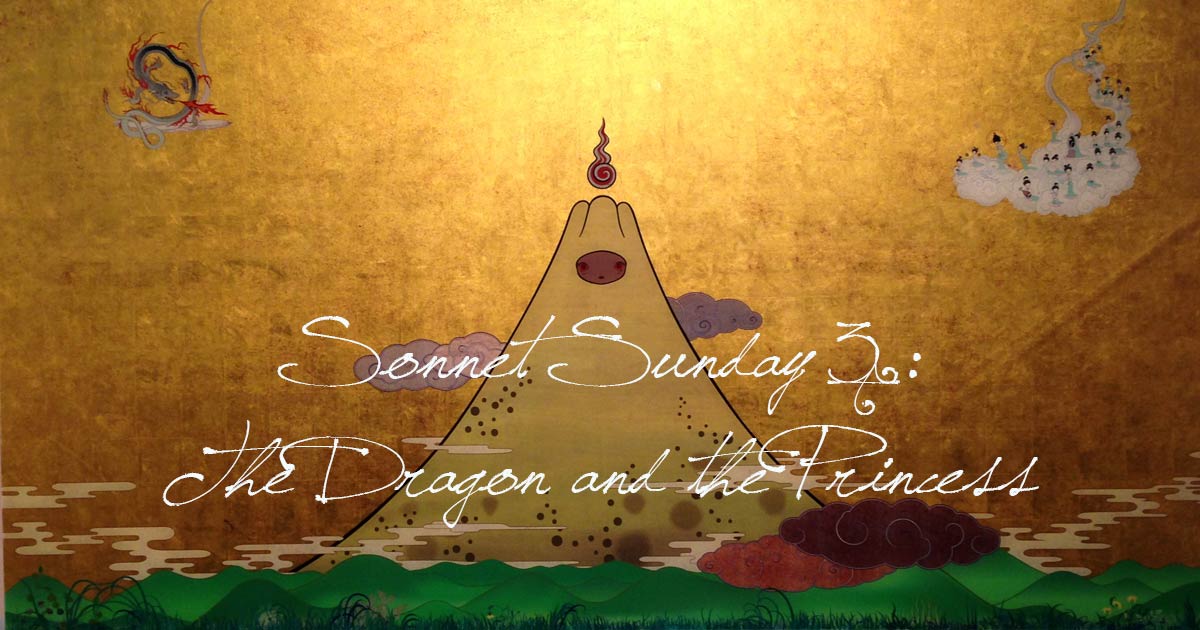Sonnet Sunday 3: The Dragon and the Princess

During my final year of college, several of my friends went through particularly ugly breakups. If I recall correctly, this particular breakup was publicly cordial for the sake of the group, but the girl was one of my roommates, so I was exposed to a bit more of the ugliness, hence this poem.
I wound up changing this one more than I expected. Some of the tweaks were just for better poetry, but in some cases it was the message. Here’s the original ending:
The dragon, born from passion laid to rest;
The broken princess waits for second best.
In some ways this ending flows better than the revised version, but there’s a big problem with it: it implies that the breakup was a bad thing. And in hindsight, I don’t think it was. I don’t remember all the details of their relationship.Maybe the girl had been fighting way harder to make this work than the guy did. Maybe the guy called it off out of selfishness. Maybe they just needed to push past one issue and their relationship would have been fine. Regardless, the truth is, if a relationship isn’t going to work, it’s better to call it off sooner rather than later, and certainly before the wedding. I say this 13 years later, but I suspect he made the right call in breaking up.
The Dragon and the Princess
(Originally published 3/25/2004)
She stayed with him, deserving wedding rings,
A princess, worth a thousand royal hearts.
She chose him over all the would-be kings;
But life ascribed to him the dragon’s part.
He said, “I’ll cause the lesser agony.”
He said, “I’d scar you more throughout the years.”
She said, “It’s for the best”; fully agrees—
And only let her pillow know her tears.
A dragon, hidden deep within a prince:
Now, years of love’s sweet labors cast aside,
Scorched by love’s fire, she stands (with a wince)
On shattered shards of longings. Not a bride.
So, to protect it from a dragon’s power,
The princess locked her heart up in a tower.

I like the revised rhyming couplet, yet I agree with its problematic conceit: the dragon’s actions may be exactly what was needed for each to find lifelong marital bliss.